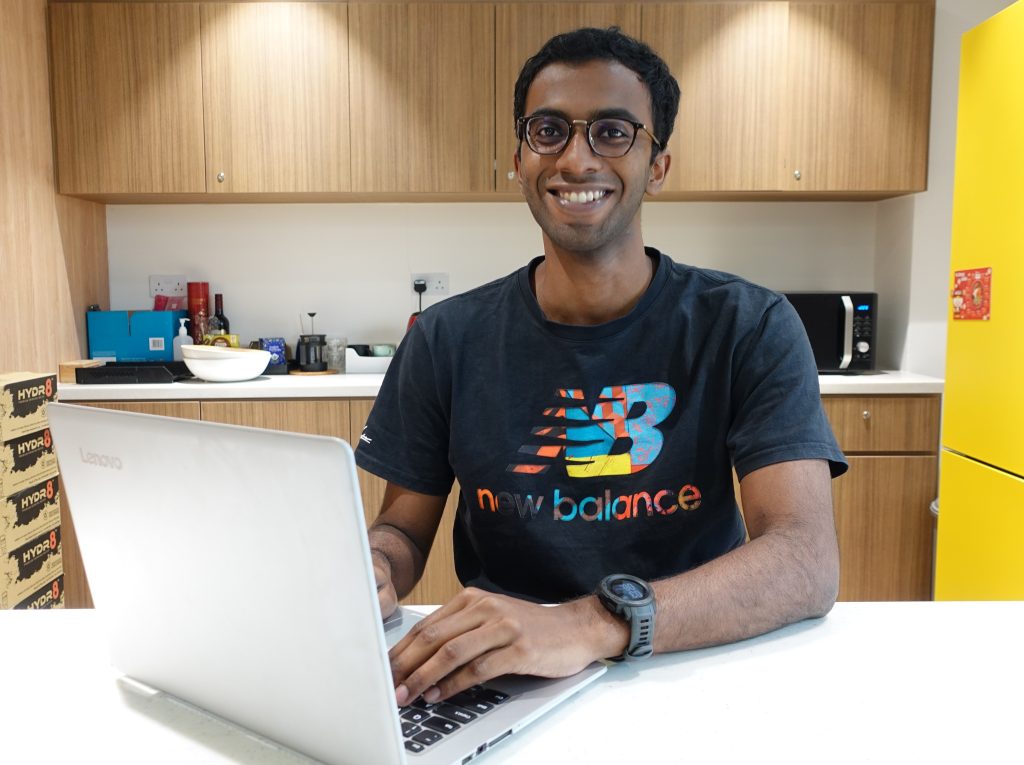
Memoirs of an Intern - Denzel
What motivated you to pursue an internship with IPUR?
As I was scrolling through my email notifications, the details of IPUR’s 2021 Data Visualisation Competition (also known as Optigram) caught my eye. The objective of Optigram 2021 was to come up with a proposal to create a digital narrative that visualises scientific data and communicates risks that endanger our climate. I figured that this was a perfect opportunity to delve into exploring ways to transform “boring” data into something that was palatable to an audience and could convince them to make decisions that benefit the environment.
Together with Raphael Roshan and Premakumar Ganesh, we created “A View Into the Future”, an interactive video with a decision-making element that shows how different diet patterns would affect Singapore’s environment 10 years from now. The video allows users to have ownership over the choices they make, which makes the climate change-related outcomes more memorable and personal.
As I was working on this project, I realised how difficult it was to make people change their daily behaviour in order to protect the environment. I noted that the way climate change is perceived as a risk differs from person to person, and I was curious to find out why. I therefore took the internship opportunity that was offered as part of winning Optigram 2021.
What work was I involved in?
I was tasked with writing an insight report on Dr Wilson Tam and his team’s research which examines the adverse effect of air pollution on health in Singapore and Hong Kong. I wrote about how and why the dangers of air pollution have seemingly become invisible to Singaporeans, even though Dr Tam’s research shows that air pollution is still a health risk even when emission levels are low.
On 8 July 2022, IPUR signed a Memorandum of Understanding with the Mongolia Ministry of Justice and Home Affairs to support public service transformation in Mongolia. I assisted in the signing ceremony, but more importantly I got to sit inside a meeting that was closed off to the public media. I was fortunate that I got to listen to NUS President Tan Eng Chye explain to the Mongolian delegation how ministers would take multiple appointments from diverse sectors so that they could facilitate cross-pollination of ideas that benefits everyone. Being amid powerful politicians and leaders was an intimidating but once-in-a-lifetime experience.
What were your experiences in IPUR?
With help from Dr Olivia Jensen, Lead Scientist (Environment and Climate) at IPUR, I developed a case study focused on the food consumption habits in Fukushima prefecture after the 3/11 nuclear disaster. Many years after the disaster, people within Japan and beyond were not willing to consume the food grown in this reputable agricultural prefecture even after exhaustive procedures and testing had been done to make sure that little to no radioactive food was entering the system. People did not trust the food, and a major contributing factor was the failure of proper risk communication. I learnt a lot about what the Japanese government could have done to better convince its people that the food grown in Fukushima was safe for consumption.
Dr Jensen also hosted breakfast and tea sessions once a week so that interns could learn about each other’s case studies. We exchanged ideas about how and why risks were being perceived differently in different crises. We didn’t only discuss work all the time, we also had fun talking about our university lives. Because there were interns from the US and UK, it was interesting to hear their comparisons of cultures in their own countries and Singapore.
What lessons did you learn in general and about risk communication?
Before my internship at IPUR, I didn’t know anything about risk communication. I now realise that risk communication is something that affects our daily lives, especially during the COVID-19 era. Looking back when the pandemic reached Singapore, the Multi-Ministry Taskforce (MTF) introduced steps to communicate the risk of the pandemic so that the population understood the dangers of COVID-19, yet at the same time not cause panic and hysteria. Because of how premature the pandemic was, they did not have actionable information from scientists and health professionals.
The MTF also received plenty of criticisms for unpopular Safety Management Measures that they enforced. Yet, the MTF did a good job of managing the pandemic because they understood the importance of risk communication. It was eye-opening to see risk communication strategies that the MTF were employing that other governments had failed to enforce, therefore causing crises in their respective countries. Looking back at my experience at IPUR, my biggest takeaway is learning how to communicate intentionally and effectively both at work and at home.
